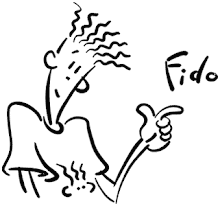
Sunday, June 28, 2009
PEACE!! no W.A.R
War is a reciprocated, armed conflict, between two or more non-congruous entities, aimed at reorganising a subjectively designed, geo-politically desired result. In his book, On War, Prussianmilitary theoretician Carl Von Clausewitz calls war the "continuation of political intercourse, carried on with other means."War is an interaction in which two or more militaries have a “struggle of wills”.The term is also used as a metaphor for non-military conflict, such as in the example of Class war.
A civil war is a dispute between parties within the same nation. War is not considered to be the same as occupation, murder, or genocide because of the reciprocal nature of the violent struggle, and theorganized nature of the units involved.
A proxy war is a war that results when two powers use third parties as substitutes for fighting each other directly.
War is also a cultural entity, and its practice is not linked to any single type of political organization or society. Rather, as discussed by John Keegan in his “History Of Warfare”, war is a universal phenomenon whose form and scope is defined by the society that wages it. The conduct of war extends along a continuum, from the almost universal tribal warfare that began well before recorded human history, to wars between city states, nations, or empires.
A group of combatants and their support is called an army on land, a navy at sea, and an air force in the air. Wars may be conducted simultaneously in one or more different theatres. Within each theatre, there may be one or more consecutive military campaigns.
A military campaign includes not only fighting but also intelligence, troop movements, supplies,propaganda, and other components. A period of continuous intense conflict is traditionally called a battle, although this terminology is not always applied to conflicts involving aircraft, missiles or bombs alone, in the absence of ground troops or naval forces. Also many other actions may be undertaken by military forces during a war, this could include weapons research, prison internment, assassination, occupation, and in some cases genocide may occur.
War is not limited to the human species, as ants engage in massive inter-species conflicts which might be termed warfare, or chimpanzeepacks will engage each other in tribe like warfare. It is theorized that other species also engage in similar behavior, although this is not well documented.
As the strategic and tactical aspects of warfare are always changing, theories and doctrines relating to warfare are often reformulated before, during, and after every major war. As Clausewitz said, "every age had its own kind of war, its own limiting conditions, and its own peculiar preconceptions." This was clearly evident in the 18-20th century where the industrial revolution had a major influence on the art of military affairs, and present day nuclear deterrence theory represents the next stage of this process of re-assessment.
Organizations and Nations abroad may take extreme measures to both prevent and instigate warfare. This may take many forms including espionage, sanctions, embargoes, treaties, petitions, and protests.
Thursday, June 25, 2009
.G.R.E.E.N.D.A.Y.
The most important is carbon dioxide, also known as CO2. All humans and animals produce CO2 every time we exhale, the but there's nothing we can do about that. The main source of CO2 is the burning of fossil fuels--coal, oil, and gasoline--and wood.
Another greenhouse gas is nitrogen oxide, which is given off by cars as we drive them and by coal-burning power plants as they generate electricity.
Still another is methane, which is created by rotting plants and by household garbage as it deteriorates in landfills. (Humans and other animals also create methane--everytime we pass gas.)
What is the Effect?
We've been creating all of these gases for a long time. But now we're producing too much of them and they are making the Earth a little hotter. Here's what could happen if average temperatures on Earth increases just a few degrees:
Some of the ice around the North Pole and the South Pole would melt.
That melted ice would cause the sea levels to rise.
People living near sea level could be flooded.
Some places would become too hot to live in.
Many farmers' crops would no longer grow.Some scientists now think that the average temperatures on Earth could rise by between 3 and 10 degrees Fahrenheit by the middle of the next century. If that happened, water levels could flood much of New York City. In Washington, D.C., water would flood the Lincoln Memorial and nearly reach the Capitol steps!
That's just the beginning. As things got even warmer, hundreds of different living creatures could die and become extinct, while many kinds of pests (such as rats and mosquitoes) could multiply in the warmer climate.
Wednesday, June 24, 2009
my destination...
Don't wanna be an American idiot.
Tuesday, June 23, 2009
did u like....
The term fishing may be applied to catching other aquatic animals such as shellfish, cephalopods, crustaceans, and echinoderms. The term is not usually applied to catching aquatic mammals, such as whales, where the term whaling is more appropriate, or to farmed fish. In addition to providing food, modern fishing is also a recreational sport.
According to FAO statistics, the total number of fishermen and fish farmers is estimated to be 38 million. Fisheries provide direct and indirect employment to an estimated 200 million people. In 2005, the worldwide per capita consumption of fish captured from wild fisheries was 14.4 kilograms, with an additional 7.4 kilograms harvested from fish farms...s..t..u..d..y..
In a non-Muslim context, Islamic studies generally refers to the historical study of Islamic religion, culture, history and philosophy. Academics from diverse disciplines participate and exchange ideas about predominantly Muslim societies, past and present. In spite of their non-religious approach, some non-Muslim scholars have written works which are widely read by Muslims. Before 1980, such non-Muslim scholars in this field have been called "Islamicists"; their discipline came under the field often called Oriental studies, now often Asian studies.














